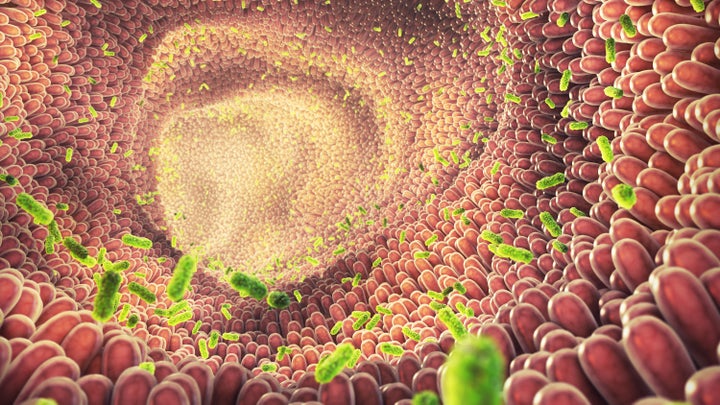Proper digestive function affects every aspect of your health. Your digestive system is complex, and things can go wrong anywhere along the digestive tract. But, your body will give you signs that indicate that your gut is in distress. It is important to stay alert for these symptoms so that you can speak with your doctor and get your gut health back on track.
1. Blood in Your Stool
Bright red blood or maroon-colored stools can indicate a problem in the lower part of the digestive tract, such as hemorrhoids or diverticulitis. It can also be a sign of inflammatory bowel disease, ulcers, colorectal cancer, and precancerous growths known as polyps.
If you notice a small amount of blood in your stool or pain when passing stool, you should speak with your doctor right away. It is also important to watch for additional signs that can indicate more serious concern, such as:
♦ a large amount of red or dark blood in a bowel movement
♦ dizziness
♦ extreme fatigue
♦ a rapid heartbeat
♦ shortness of breath
2. Significant Change in Bowel Habits
Bowel habits include frequency, consistency, and color, which are different for everyone. Changes in diet, taking certain medications, and other lifestyle factors can cause temporary changes in your bowel habits, but these are usually nothing to worry about.
However, persistent or severe changes in bowel habits can indicate an underlying health problem, especially when additional symptoms occur. Serious issues such as Irritable Bowel Disease or Syndrome, thyroid problems, celiac disease, and cancer can all cause significant changes in bowel habits.
If any change in your bowel habits lasts for more than a few days, you need to speak with your doctor. Even minor changes that are persistent, such as constipation or diarrhea, can indicate a health issue. Seek immediate medical attention if you experience:
♦ severe abdominal cramps
♦ dizziness or confusion
♦ persistent nausea or vomiting

3. Right Upper Quadrant Abdominal Discomfort
The right upper quadrant is the uppermost quarter on the right-hand side of your torso. It houses many important organs, including the liver, gallbladder, large and small intestines, stomach, pancreas, and right kidney.
Pain can come from any of these organs, but due to the complexity of the human body, pain can also come from other areas. The most common causes of pain in this area include indigestion and gallstones, infections, ulcers, pancreatitis, and hepatitis.
Because 'referred' pain can make it challenging to identify the cause, it is important to talk to your doctor about right upper quadrant pain and seek immediate medical treatment if it is accompanied by fever, bloody stools, swelling, and persistent nausea or vomiting.
4. Difficulty Swallowing
The medical term for difficulty swallowing is dysphagia, and this can occur when you eat too fast or don't chew your food well enough. In these circumstances, food may stick in the esophagus for a few seconds but will pass spontaneously or can be washed down easily with liquids.
Persistent dysphagia can be related to a serious medical condition that requires treatment. The most common cause is acid reflux (GERD). People with persistent acid reflux may experience frequent esophageal spasms, develop an ulcer, or experience narrowing of the esophagus, which can all cause difficulty swallowing.
5. Vomiting
Vomiting, in most cases, is a protective reflex to rid your body of viruses or bacteria that have entered your digestive system. Certain lifestyle choices can also cause vomiting, such as drinking too much alcohol or overeating.
On the other hand, prolonged or severe vomiting can be a sign of more serious conditions such as food poisoning, gastroenteritis, GERD, Crohn’s disease, or irritable bowel syndrome. There is also an increased risk of dehydration with prolonged vomiting.
Seek immediate attention if you:
♦ experience repeated vomiting for longer than a day
♦ are unable to keep down any fluids
♦ see blood in vomit
♦ have a fever
♦ have lost significant weight since the vomiting began

Naturally-Sourced Digestive Support
In addition to bringing these symptoms to your doctor’s attention, one of the most important parts of maintaining digestive health is proactive care. One of the best ways to do this is by ensuring your gut gets the nutrients it needs.
♦ Probiotics help maintain balance in the microbiome by nourishing the beneficial flora. As part of a balanced diet, probiotics can support optimal digestion and nutrient absorption while helping to reduce common indigestion, bloating, and gas.
♦ Prebiotics are the fibers that nourish the “good” bacterial strains in your gut while crowding out the bad strains. Having enough prebiotic support can keep the gut microbiome nourished to promote digestive, immune, and overall health.
♦ Digestive enzymes facilitate the breakdown of food into smaller nutrients, allowing your body to absorb them more easily. By promoting proper digestion of food, digestive enzymes can help relieve many common symptoms such as occasional abdominal discomfort and bloating and support overall digestive health.
Final Thoughts
According to the NIH, 60 to 70 million Americans are affected by some type of digestive disease. But, there is so much that you can do to keep your gut healthy so you do not become part of the statistics.
Your gut will give you signs of distress, so make sure you pay attention. For additional support, a healthy lifestyle with balanced nutrition, regular exercise, stress management, and nutrients that nourish your gut bacteria will go a long way toward helping you avoid serious digestive issues.
Dr. David Kahana
![]()
Dr. David Kahana is board certified in Pediatrics and Gastroenterology through the American Board of Pediatrics (ABP), as well as Medical Nutrition through the National Board of Physician Nutrition Specialists.






